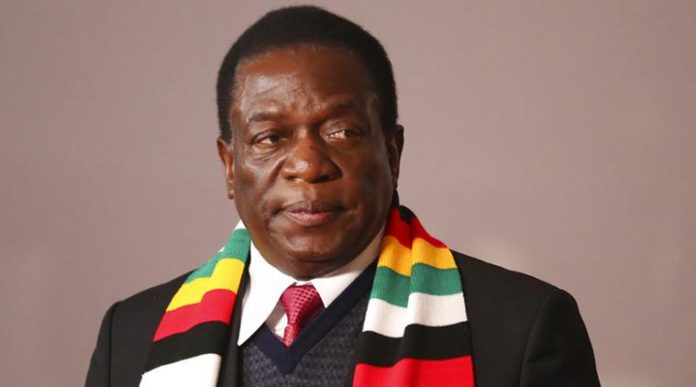With President Emmerson Mnangagwa set to launch the Gukurahundi Community Outreach Programme in Bulawayo on Sunday, ZAPU has petitioned him to immediately halt the hearings, claiming the process is flawed, exclusive, and divisive despite being billed as the foundation for Zimbabwe’s national healing and reconciliation.
While other interested groups haven’t explicitly demanded President Mnangagwa stop the process, they share similar concerns, noting the initiative lacks public Cabinet approval or a legislative framework.
Analysts worry that the absence of perpetrators might deter victims from providing evidence due to mistrust and fear without legally binding assurances.
In its petition, ZAPU represented by its members John Zolani Dlamini and Patron Nketha Kutshwekaya said the party has found it obligatory to interdict President Mnangagwa’s initiative, warning it may plunge the country into “complete despondency” by causing unhealed wounds to fester.
The petitioners said the programme is “ill-advised and ill-conceived” noting that it was divisive, evidenced by the exclusion of Midlands chiefs, citing that Zimbabwe’s Constitution in Section 90, mandates the President to: “promote unity and peace in the nation for the benefit and well-being of all the people of Zimbabwe.”
They said the Constitution further bestows a mandate to the president to uphold, defend, obey and respect this Constitution as the supreme law of the country.
However, the petitioners said the president’s approach in empowering the chiefs to spearhead the Gukurahundi process breaches the mandate bestowed upon him by the Constitution.
“Chiefs are not mandated by any legal provision to lead such a political process, indeed your gentleman’s agreement with the traditional leaders derives no force of the law. The neutrality of the chiefs as a body has been questioned by the stakeholders and as such there is no guarantee that your process will achieve any tangible results,” read part of the petition.
“our agreement with the Matabeleland Collective has no legal backing and this organisation derives no mandate to negotiate on behalf of the people most affected by the hostilities.
“Your initiative leaves out the Midlands area, yet it is a known fact that the province also bore the brunt of the hostilities. Such an approach does not promote equality and discrimination amongst those in the same position.
There is presently no assurance that the results from this chiefs-led process will result in action that promotes a healing process and closure. Such an open ended process runs the risk of opening up wounds resulting in a cycle of hurt and pain once more.”
The petitioners also said President Mnangagwa’s initiative, “completely ignores ZAPU and ZPRA as organisations and entities” that were directly affected by Gukurahundi “at that pertinent time.”
“This lacuna will result in the process being inconclusive…” said the petitioners who besieged the president to “immediately announce a suspension of the public hearings.”
The petitioners directed President Mnangagwa to engage ZAPU and ZPRA on the “correct” initiative that will engage all stakeholders and allow representatives of the people in the affected areas, through Members of Parliament, to be in the forefront of drafting legislative framework to “scaffold this process with legality.”
In another open letter, ZAPU president, Sibangilizwe Nkomo said they continued to oppose this “perpetrator-led process.”
“We maintain our principled stance that President Mnangagwa’s programme amounts to sweeping the past under an iron carpet of ‘command amnesia.’ He wants the wounded, the raped, the maimed and the bereaved to simply forget about what happened and let bygones be bygones,” Nkomo said.
Nkomo claimed ZAPU has made “spirited” efforts to follow up on their letter to President Mnangagwa hoping to interdict “his self-serving programme.”
“Sadly, (Mnangagwa) has chosen to stay on his high horse, trusting that he can passively use chiefs to railroad Gukurahundi victims into drinking from his poisoned chalice,” he said.
Ibhetshu LikaZulu, a pressure group, claimed the lack of legislation as the foundation of this initiative compromised the entire process.
“There must be legislation but this is not even a government programme, it’s Emmerson’s and friends’ game show,” said Mbuso Fuzwayo, the organisation’s secretary general.
“The process is opaque, it is not victim centered, it is perpetrator led. We wanted the process to be handled differently and before it starts, the government should have acknowledged it killed innocent people.”
A political analyst, Bernard Magugu said President Mnangagwa was not paying attention to the concerns of the people and could be “digging a deep hole for himself.”
“He thinks he is doing right by avoiding these concerns… wait and see,” he warned.
“Soon after these hearings we will need to know what happened when a genocide was unleashed on innocent civilians in Matabeleland and Midlands. Mnangagwa should be in a position to explain.”
According to Iphithule Maphosa, an oppositional politician, ideally, a neutral, independent commission should have been engaged to facilitate the hearings,
“These chiefs handling the hearings are the same ones who receive allowances from the same government that is the perpetrator. The chiefs could be working under duress in fear of losing their titles and benefits or they are failing to see that when this blows up they will be blamed,” he said.
This initiative started in 2019, after the then-Matabeleland Collective invited President Mnangagwa for consultations on issues affecting the region.
The consultations paved the way for President Mnangagwa to involve the chiefs, tasking them to spearhead the healing process.
In 2020, the National Council of Chiefs endorsed this initiative and since then, have been charting a way forward, despite delays resulting in the July 2024 launch
The chiefs, working with panels, are expected to capture data and address the genocide effects.

